At work, you surely make sure to step back, to be logical and rational. However, you sometimes make the wrong decision or the wrong choice. Why do you do this? Because you are a victim, like everyone else, of cognitive bias!
A cognitive bias is a thinking mechanism that disturbs the processing of information and distorts reality. This deceptive and false logical thinking pattern facilitates decision-making, since it simplifies the context: instead of relying on analytical reasoning, the brain chooses a biased vision of reality based on shortcuts, beliefs and categorizations that can lead to an error in diagnosis. For Olivier Sibony, consultant to top executives for 25 years for McKinsey and author of Vous allez commettre une terrible erreur, a cognitive bias is simply "a universal and predictable way of being wrong that distorts our reasoning". And yet, although it is part of human nature, this way of being wrong can be avoided!
So, what are the main cognitive biases in management and how can we remedy each of them to better manage our team?
There are more than a hundred different cognitive biases. We have chosen 5 of them to help you in your daily life as a manager and better manage your team.
1. The availability bias or availability heuristic
Also known as heuristic bias, this bias occurs when the brain favors easily accessible information, i.e. information that is immediately available in memory, when making a decision. This information is often emotional or stereotypical, while more recent information, which is often more relevant, is put aside.
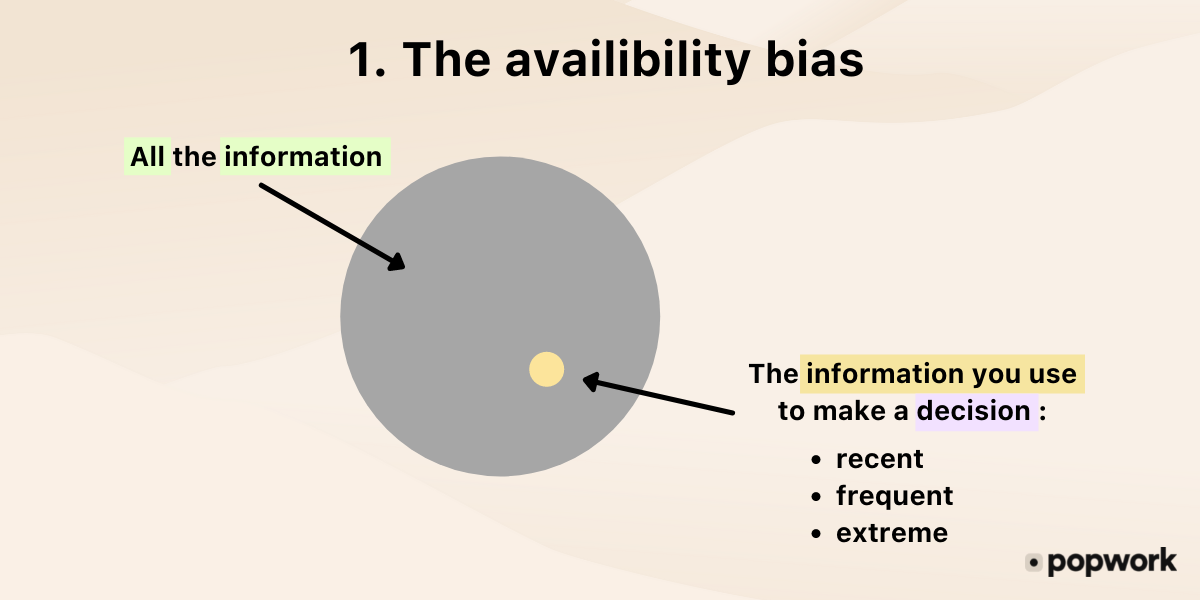
To avoid this bias, think about pushing the reflection, weighing the pros and cons, taking a step back on the situation (a break in the day, a quiet moment, a walk at lunch time)... You can also set up a monthly steck back ritual with your team that will help you make your head clear, focus on the right priorities and put things in perspective.
2. The optimism bias or overconfidence
To the question "Are you a good manager?", how would you answer? A) In the top 25%; B) Better than average; C) Less than average; D) Among the worst. When we ask drivers, teachers or entrepreneurs, 90% say they are better than average.
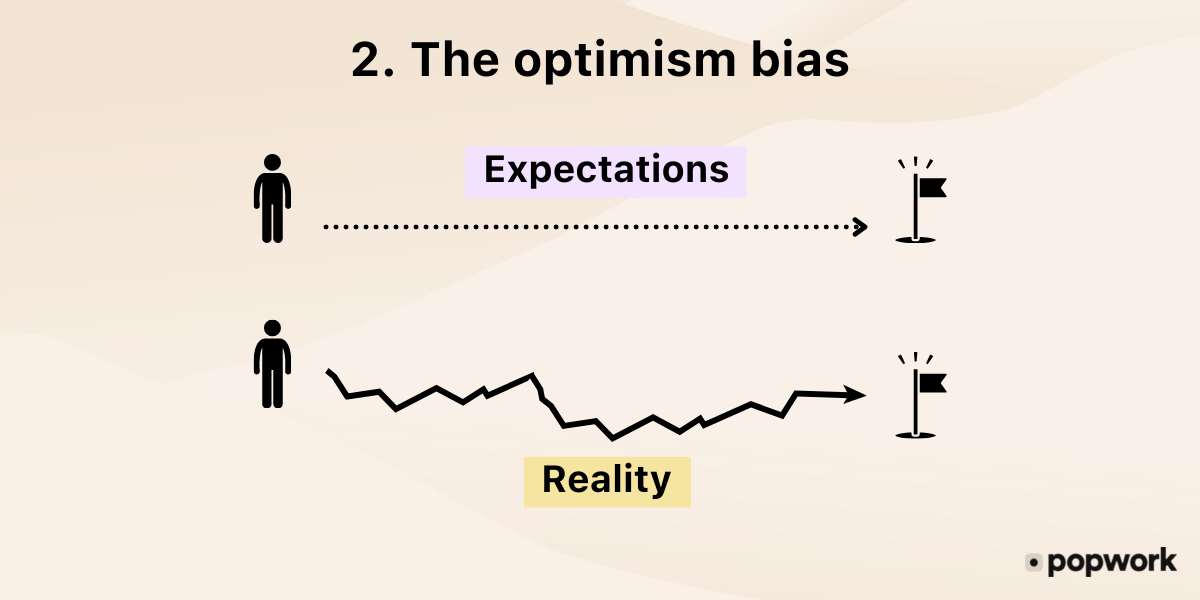
It's good indeed to be optimistic, but overconfidence can lead managers to underestimate some (big) risks. To avoid this, you need to recognize your weaknesses, evaluate your real skills and listen to the ideas and intuitions of the rest of the team thanks to regular meetings with your team members and the implementation of participative management. For this, you can set up weekly check-ins with each member of your team on a tool like Popwork: this will allow them to give you the important information each week and will give you the visibility you need to make the right decisions.
3. The conformity bias
This bias is the tendency to follow the opinion of the majority for fear of being marginalized. It means having an opinion that differs from the majority but not daring to express it out of an instinct for "social survival". This can lead a team, a group or a company to make big mistakes!
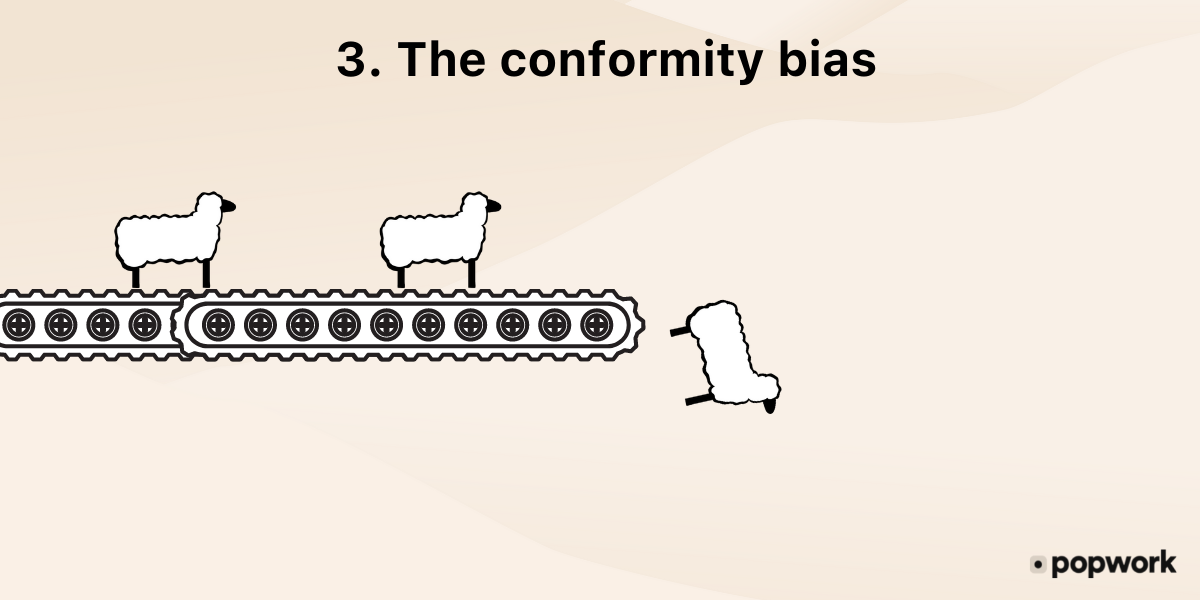
Start by becoming aware of the influence of others on your decisions, then change your perspective: ask unusual and unexpected questions that your team members or colleagues are not used to hearing. Be different to challenge people's minds and ways of thinking. If you ask better questions, you will get better answers, and therefore better reasoning from your team.
4. Commitment bias, or escalation of commitment
This is a behavior pattern in which when facing increasingly negative outcomes we nevertheless continue this behavior instead of altering course. For example, your intuition tells you that the project you have been leading for several years will inevitably fail, but the energy and time spent have been such that you do not prefer to end it. How many companies are accumulating investments to develop an innovative service or product that will never see the light of day?
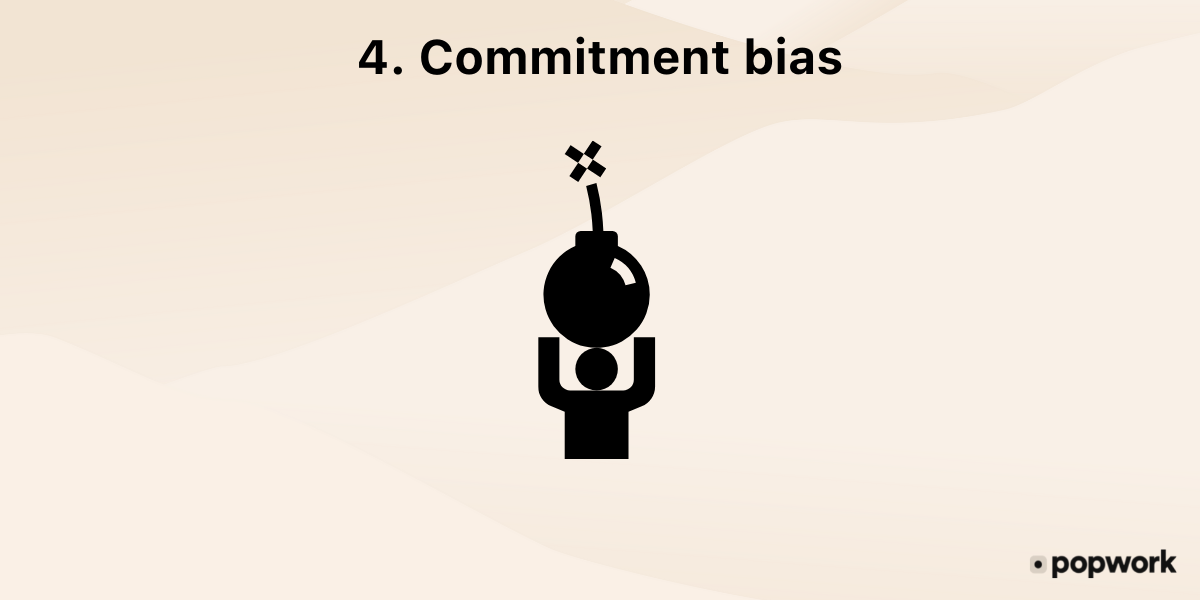
To avoid this, stay humble and be honest, with yourself and your team. Test the SMART method to better understand the concrete progress and objectives of your team, and thus better support it towards a great final and common objective.
5. The Dunning-Kruger effect
This is a phenomenon in which less qualified people tend to overestimate their skills. According to psychologists David Dunning and Justin Kruger, the less knowledge or skill a person has, the less likely they are to realize they are ignorant.
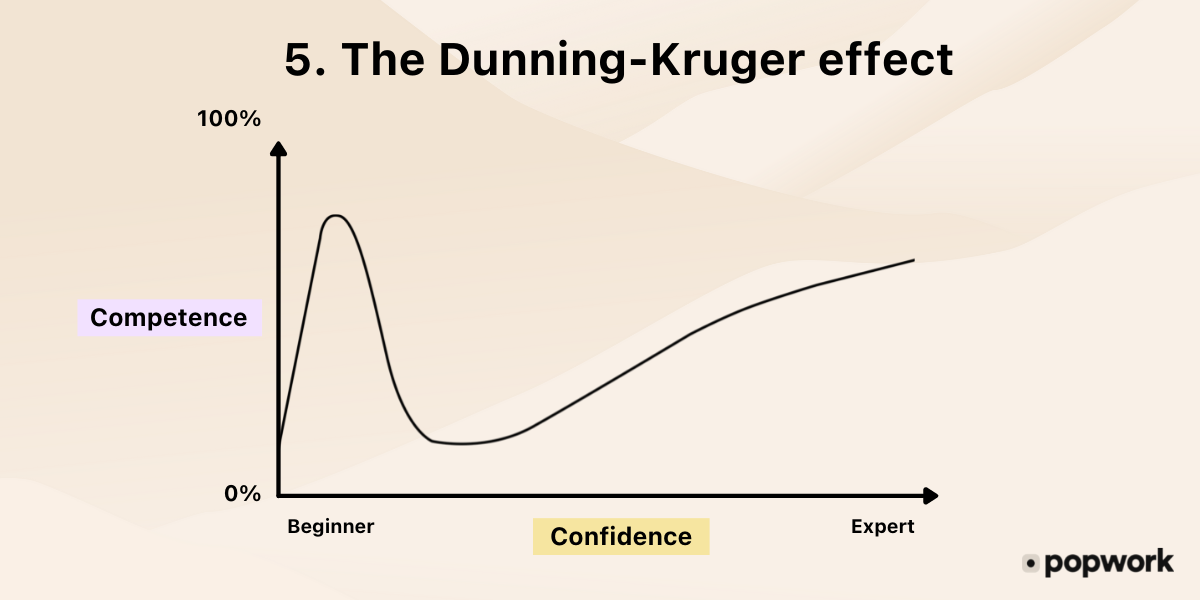
So, if you manage an employee whose impression of knowledge exceeds his actual knowledge, challenge him, confront him with his contradictions or weaknesses. Also, don't hesitate to give regular feedback, including negative one, offer him training to improve his capabilities and help him evolve.Good managers support their team, collaborate with their team members. And if you are afraid of overestimating yourself, the simple fact of questioning yourself can change things.
So, do you recognize yourself among these five biases? Remember, this is only a small part of the existing biases. Perhaps you are more a victim of the status quo bias (you prefer the current situation to a new one because you fear change) or the false consensus bias (you assume, wrongly, that all your team members are in majority agreement with your decision)... ?
The good news is that each bias can be countered, provided you become aware of the wrong thought pattern you are used to relying on. The more you get used to identifying different cognitive biases, the more impact you will have and the better you will manage your team!

